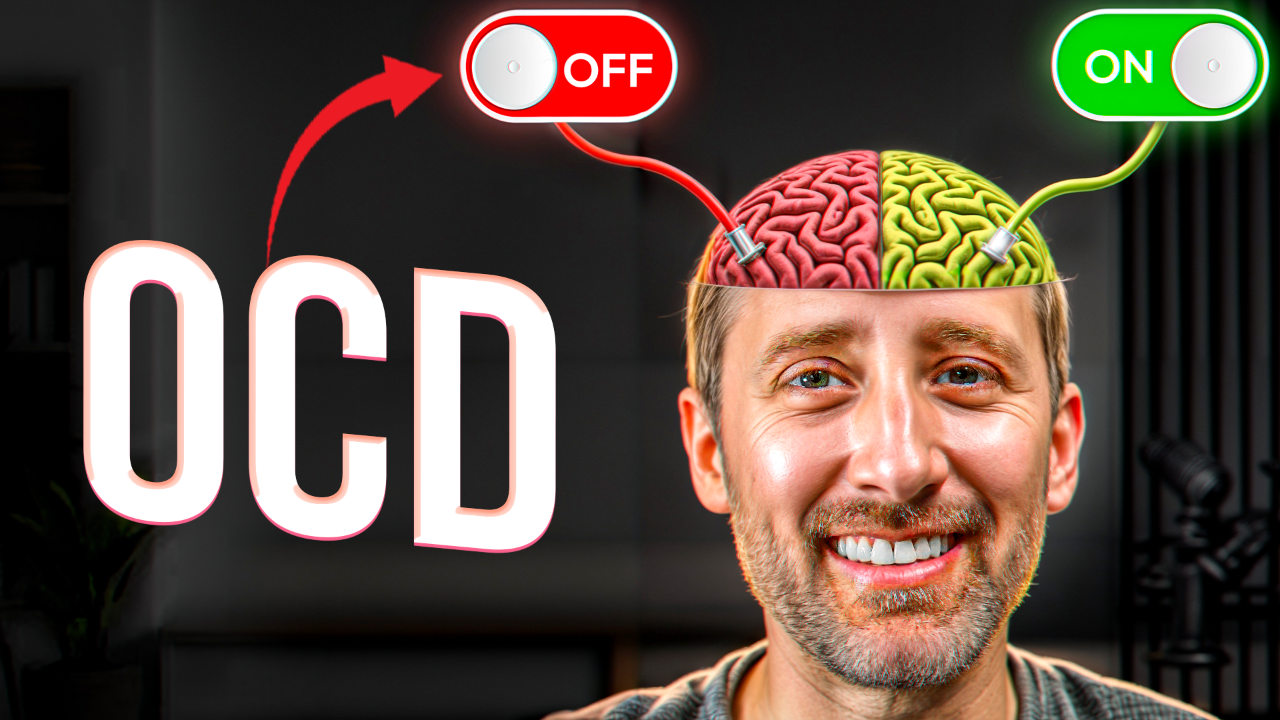Rewiring Your Brain: The Science-Backed Secret to Quieting OCD
May 14, 2025
Rewiring Your Brain: The Science-Backed Secret to Quieting OCD
Rewiring Your Brain: The Science-Backed Secret to Quieting OCD
What if the secret to quieting your OCD is hiding in your brain's wiring? It's true! Research shows that in OCD, parts of your brain like the orbitofrontal cortex are hyperactive. But here's the exciting part - you can change this!
In this article, we're gonna explore why your OCD mind gets stuck, won't move on, and show you a technique that can actually rewire your brain. It's a game-changer. Let's dive in to learn how you can start using it today and finally break free from those pesky thought cycles!
The Science Behind Your Stuck Brain
Ever feel like your brain's stuck on repeat, playing the same worrying tune over and over? Well, you're not alone, and there's a scientific reason for this mental merry-go-round.
Your Brain's Worry Center
Let's talk about your brain's worry center, the orbitofrontal cortex. In folks with OCD, this part goes into overdrive. It's like a car alarm that won't stop blaring, even when there's nothing to worry about. Your brain keeps screaming "Danger! Danger!" when everything's actually fine.
Scientists have peered into these overactive circuits, and what they've found is fascinating. People with OCD have more activity in this orbitofrontal cortex. It seems to stay on high alert.
But here's the thing - your brain isn't broken. It's just a little confused, like it's speaking a different language than the rest of your body. And just like learning a new language, it takes time and practice to get your brain back on track.
The Faulty Security Team
Now, let's talk about another key player: the basal ganglia. This part is supposed to be like a bouncer at a club, deciding which thoughts get to stay and which ones need to hit the road. But in OCD, this bouncer isn't doing its job of filtering out those pesky, intrusive thoughts.
The basal ganglia works with two other brain parts - the thalamus and the prefrontal cortex. Together, they're like a security team that's supposed to help you control your behavior. But in OCD, this team is dropping the ball. They're not helping you "shut off" the urge to do those repetitive behaviors or rituals.
So, what does all this brain talk mean for you? Well, it means your brain's gotten into some bad habits, like a kid who's learned to get attention by throwing tantrums. But just like you can teach that kid better ways to communicate, you can teach your brain new tricks too. Your brain's wired this way right now, but it doesn't have to stay that way.
The Secret Weapon: Exposure and Response Prevention (ERP)
Now that we understand why your brain gets stuck, let's unlock the secret weapon: exposure and response prevention (ERP). It's like having a key to free your mind, and it's simpler than you think. ERP is basically facing your fears head-on.
How ERP Works
Think of it like a brain workout. You're training your mind to react differently to those annoying thoughts. Here's how it works: you face the thing that freaks you out, but you don't do your usual rituals. You're telling your brain, "I know you're scared, but we're not doing that dance this time."
Real-World Examples
Let's look at some examples. If you have contamination OCD, touch a doorknob but don't wash your hands right away. For real event OCD, it's thinking about the event, but not trying to make sense of it and change the brain's response to the thing that happened. With relationship OCD, say "I may or may not be with the right person" out loud, but don't ask for reassurance or make mental lists.
It's tough at first, like your brain's screaming at you to do those compulsions. But here's the cool part: your brain starts to learn, "Hey, maybe this isn't so bad after all." It's like a dog that's been barking at the mailman for years suddenly realizing the mailman isn't a threat.
If you want a step-by-step guide to all this, check out my Master Your OCD online course. It's got everything you need to tackle this stuff head-on.
Becoming Who You Want to Be
The more you face your fears without giving in to the compulsions, the less power they have over you.
Here's an easy way to think about it. What would you be doing if you didn't have OCD? Would you be checking that thing? Avoiding that place? Researching? Washing? Start acting like the person you want to become.
Creating New Neural Pathways
You're rewiring your brain. Every time you resist a compulsion, you're changing your brain's circuits. You're teaching it a new way to handle anxiety, creating new pathways in your mind. It gets easier and easier.
Start Rewiring Your Brain Today
The best part? You can start today. Pick something that makes you anxious, but not the worst thing. Maybe leave a light switch unchecked or a door unlocked. Maybe it's some uncertainty you keep questioning. Face that anxiety, sit with it, and don't give in to checking. It'll be uncomfortable, but that's how you know it's working.
All in all, your brain doesn't want to move on because it's not wired that way. We have to train it.
Start small, face one fear at a time, and don't give up. You've totally got this. Ready to take your OCD-fighting skills to the next level? What small step will you take today to start rewiring your mind?















